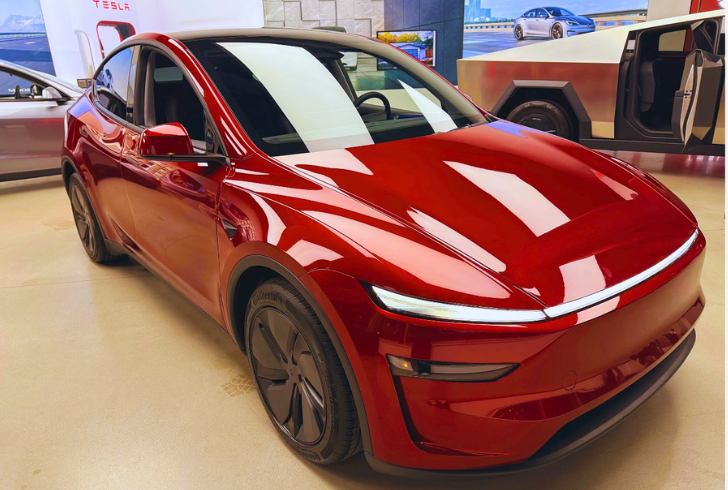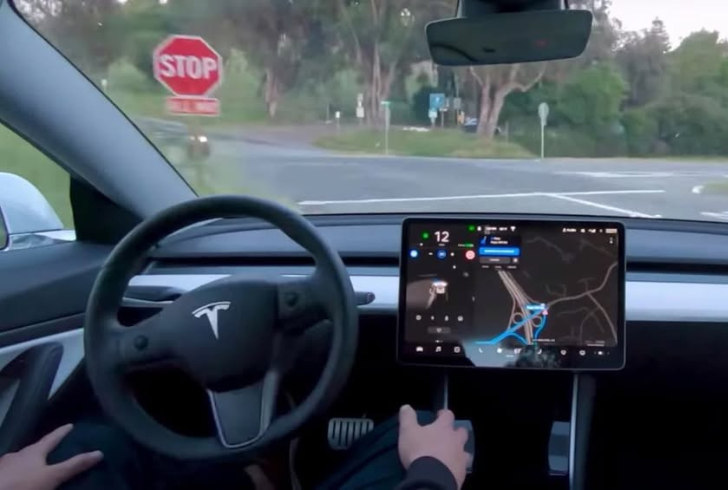Tesla Ordered to Reimburse Customer After Failing to Deliver Full Self-Driving Tech
For years, Tesla has marketed its FSD package as a key innovation—software that would eventually allow its vehicles to operate autonomously. But that promise is under renewed scrutiny after a recent legal decision questioned whether the company’s claims hold up.
A recent arbitration ruling forced Tesla to issue a refund for the FSD package—and it may not be the last.
Though it only involved one customer, the decision sets a precedent that could open the door for others who bought in with high expectations and are now feeling let down.
Tesla’s Promise
Tesla has long claimed that vehicles made after 2016 contain all the hardware required for self-driving capabilities. Buyers were told that software alone would unlock full autonomy—a feature to be delivered over time. This promise, sold under the FSD package, cost between $8,000 and $15,000 depending on the year of purchase.
But that future hasn’t arrived. Drivers are still required to stay engaged behind the wheel, and what was once described as “just around the corner” seems no closer than it did years ago.
A Decade of Delays and Hardware Failures

Instagram | electrek.co | Tesla has consistently claimed that all cars made after 2016 have the hardware for full self-driving.
Nearly ten years after those initial promises, Tesla has still not delivered a truly self-driving vehicle. In fact, hardware updates became necessary as Tesla quietly admitted older systems wouldn’t cut it. Owners with HW2 and HW2.5 computers were required to upgrade to HW3 for enhanced functionality. By early 2025, even HW3 was deemed insufficient.
Elon Musk confirmed in January that Tesla would need to update to HW4 to support the original FSD vision. However, Tesla has yet to share a timeline for when — or how — owners with outdated hardware will receive their upgrades. This lack of clarity has left many customers frustrated, with confidence steadily declining.
One Owner’s Legal Battle
Marc Dobin, a Tesla owner in Washington, bought his third Tesla in 2021 — a Model Y. He paid $10,000 for the FSD package, motivated by his wife’s health condition. Dobin believed FSD could grant her some autonomy despite her declining mobility.
However, things didn’t go as expected. Tesla restricted FSD Beta access through a “safety score” system — something Dobin never agreed to when purchasing the feature. Additionally, the technology still required full driver supervision, contrary to how Tesla originally marketed it.
Frustrated, Dobin pursued arbitration, as required under Tesla’s acquisition agreements. Drawing from his experience as a lawyer, he spent nearly a year fighting the case.
Tesla’s Arbitration Misstep
When the hearing took place via Zoom, Tesla presented only one witness: a field technician. This individual admitted to not reviewing Dobin’s specific vehicle details, driving data, or the original purchase contract. Meanwhile, Tesla’s lawyers remained mostly passive during questioning.
Dobin described the witness as being “set up to be a human punching bag,” unprepared to answer critical questions. Tesla failed to produce a sales representative or technical expert who could speak to the contractual obligations or capabilities of the FSD software.
The arbitrator ultimately sided with Dobin, stating that the FSD feature “was not functional, operational, or otherwise available.” Tesla was ordered to refund the $10,000 plus taxes and cover Dobin’s arbitration costs, which totaled nearly $8,000.
Growing Customer Frustration and Tesla’s Liability
Dobin’s case is not isolated. Thousands of Tesla owners have spent large sums on FSD with expectations of future autonomy. Many still drive cars that lack the promised functionality. Tesla’s refusal to voluntarily issue refunds or create a clear retrofit plan for outdated hardware has further eroded customer trust.
Each car with FSD installed — yet incapable of autonomous driving — represents a growing liability for Tesla. If more customers seek arbitration and win, Tesla could face substantial financial consequences, not to mention reputational damage.
Software vs. Hardware Reality

Instagram | @ev_car_tech | Tesla’s self driving promise still struggles to match real world results.
Tesla’s biggest challenge now lies in the gap between software promises and hardware limitations. While Tesla continues testing FSD capabilities on newer models equipped with HW4, real-world performance metrics remain disappointing. Data suggests that current versions of FSD can only manage 500 miles between critical disengagements, falling short of the reliability expected from true autonomous systems.
Will Tesla Act in Good Faith?
Rather than continuing legal fights, Tesla could minimize future conflict by offering standing refunds to any owner dissatisfied with FSD. Doing so would signal accountability and help rebuild credibility. The company has already spent more fighting some of these cases than it would cost to refund customers outright.
Yet, Tesla seems unwilling to adopt this approach. Its continued resistance to issuing refunds — despite repeated failures to meet contractual promises — reveals a broader problem in how it manages its commitments.
What’s Next for FSD Buyers?
Until Tesla clearly outlines a retrofit plan for existing customers and delivers a fully functioning unsupervised driving system, dissatisfaction will grow. Consumers now expect more than marketing hype. They want transparency, reliability, and results.
In the case of Marc Dobin, a single arbitration ruling may seem small. Yet, it sets a precedent. As more customers consider similar actions, Tesla will need to decide whether to change course or risk deeper backlash.
Tesla finds itself at a crossroads. While its vision for the future remains bold, the company must first resolve the missteps of the past. Customers deserve what they paid for — or their money back. Delivering on those expectations could shape Tesla’s reputation for years to come.